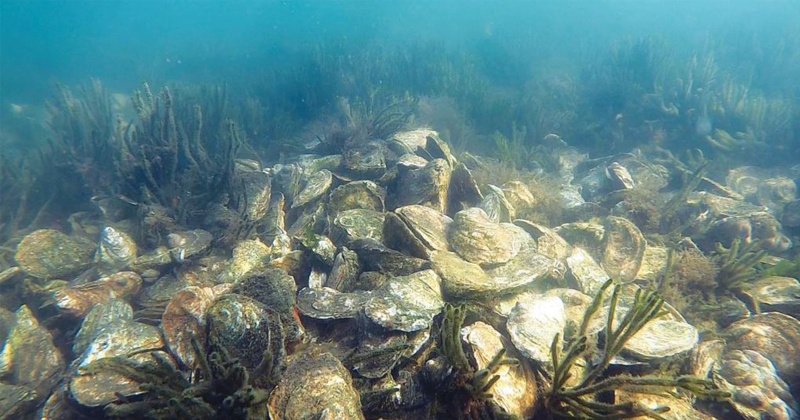Palacios Marine Agriculture Research (PMAR), a nonprofit organi- zation, is embarking on a groundbreaking marine species restoration initiative by aiming to deliver 15 billion oysters to the Texas coast by 2025. The Ed Rachal Foundation’s financial commitment has catalyzed PMAR’s formation and the launch of the marine sciencebased campaign to revive Texas’ depleted oyster reefs.
Unlike other oyster restoration proj- ects such as the Horn Point Oyster Hatchery and The Billion Oyster Project in New York Harbor, PMAR's efforts span the entire Texas coast, a critical region along the Gulf of Mexico’s western margin. Despite its resilience, this vast marine ecosystem faces threats from human-induced disasters like the Deepwater Horizon incident and climaterelated stressors like sea level rise and warming seas. The National Academy of Science Gulf Research Program has extensively addressed these challenges, providing recommendations for enhancing community and ecosystem resiliency, with PMAR incorporating these suggestions into its restoration strategy.
Oysters play a pivotal role in ecosystem services, benefiting human wellbeing and enhancing the health and productivity of Texas bays and estuaries. PMAR's Fifteen Billion Oyster Project aims to address issues outlined in the academy reports by implementing large-scale ecosystem projects that measurably impact entire systems. The organization collaborates with state and federal agencies, conservation NGOs, oyster fisheries, and aquaculture interests to deploy billions of oysters in innovative ways. The project focuses on oyster reef restoration, “living shoreline” protection and the generation of carbon credits to fund and sustain these critical efforts.
Dr. Joe Fox, PMAR’s executive director, emphasizes the importance of oysters in improving water quality, providing habitat, and protecting shorelines. With oysters facing a global decline, PMAR sees a unique opportunity to reverse the trend along the Texas Coast, where oysters act as keystone species for the entire ecosystem. The organization operates a mobile hatchery, the first west of the Mississippi River, in Palacios, Texas, producing up to 20 million oyster larvae per week.
While the mobile hatchery serves as a short-term solution, a larger facility under construction at the former Hulen Army Air Force Base will enable industrial-scale oyster larvae production for placement in historic oyster reef habitats. Overfishing and environmental disasters have significantly impacted oyster reef habitat in the Texas Gulf Coast, leading to a decline in the oyster fishing industry. PMAR aims to reverse these trends, inspired by successful conservation efforts for other species like the red drum and spotted seatrout.
PMAR's support extends to the oyster aquaculture industry, aiming to relieve pressure on commercial oyster fishing, create jobs, and enhance coastal economies. The organization supplies seed oysters to Texas oyster ranchers, fostering the growth of a conservation-oriented aquaculture industry. By promoting responsible stewardship, PMAR seeks to develop critical oyster reef habitat with funding from entities like the National Oceanic and Atmospheric Administration.
Education and outreach play a crucial role in PMAR's mission, emphasizing the environmental benefits of oyster reefs. Oysters act as water treatment plants, filtering large volumes of water daily, providing habitat for marine life, and indicating environmental degradation when absent. The organization aims to raise awareness about the ecological significance of oysters while actively engaging in restoration and aquaculture initiatives.
Palacios Marine Agricultural Research, established by the Ed Rachal Foundation, remains dedicated to the restoration of oysters on the Texas coast. Oysters, as keystone species, contribute significantly to the health of bays and estuaries, supporting the state’s coastal economy. For more information, visit https://pmartexas. org/.


